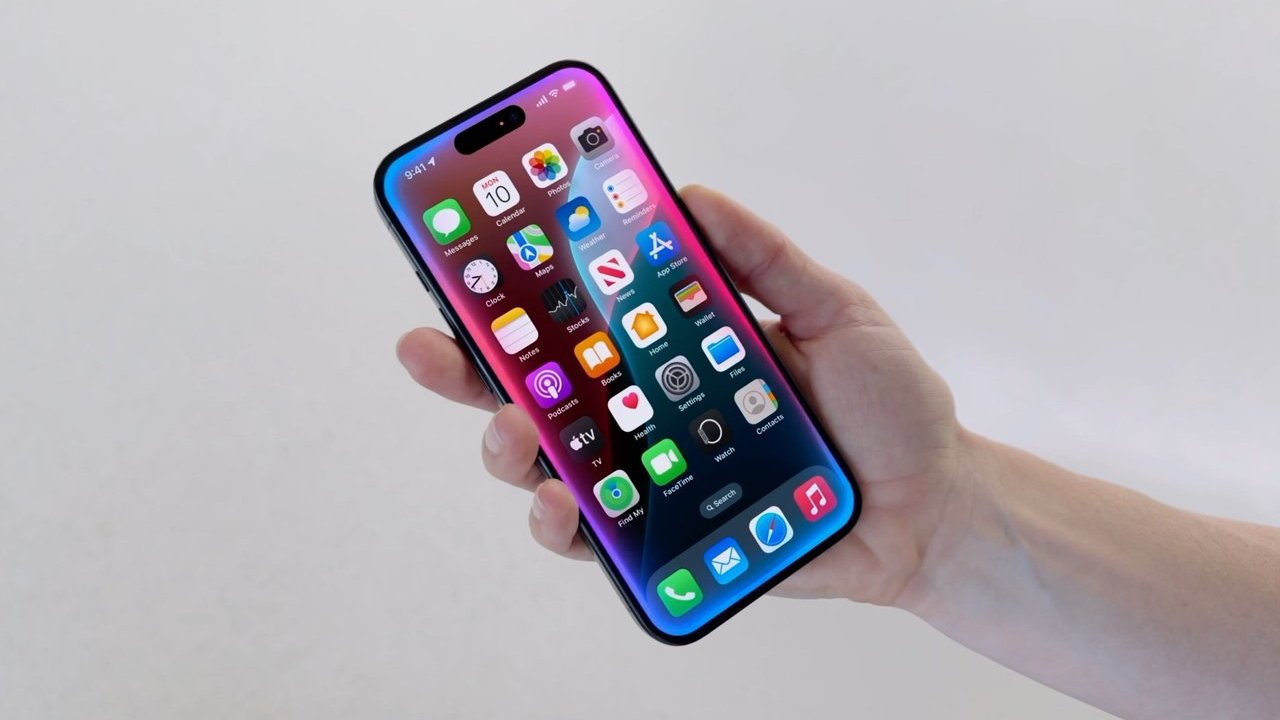Apple's Siri renovation is probably going to take longer than expected
It's been widely reported that Apple's Siri advancements promised for 2025 would arrive in April with iOS 18.4 but a new report casts some doubt on that timeline.

Siri is gaining a new animation around the edge of iPhone screens
Apple has yet to officially announce when the advancements were coming, beyond a 2025 timeframe. The features were announced at WWDC 2024 and were said to be coming to iOS 18.
But, according to a new report by Bloomberg on Friday, Apple's work has hit some snags. Some features that were said to be planned for iOS 18.4 are said to have been pushed back to May, or even later.
Reportedly, testing of the improvements internally aren't going well. The features may be technically included in iOS 18.5, but disabled until Apple throws the switch to turn them on at some point after release.
That means features like Personal Context Understanding, In-App Actions, and Onscreen Awareness will wait to launch.
After the improvements, Siri will gain the ability to better interpret commands, and take multiple steps. So after asking about a sports team, a user can just say "when do they play next?" and then have Siri add that event to their calendar.
This aspect of the improvement round leans on app intents. This is the ability of developers to present users with specific features of their apps, to be used directly by Siri.
More improvements for Siri and Apple Intelligence are expected to be announced for iOS 19 at WWDC 2025 in early June.
Read on AppleInsider

Comments
Retrospectively, neither Apple nor Amazon really achieved what they set out to do, in my opinion.
Apple failed to move Siri along fast enough and failed to improve its accuracy and effectiveness for its intended purpose. Amazon's Alexa very quickly zoomed past Siri on nearly every measurable metric. At the same time, Amazon distilled its device aspirations down to simpler and less complex devices that never tried to compete directly with Apple and its iPhones and iPads. Amazon could ship devices that were "good enough" but nowhere near the stellar appearance, functionality, build quality, usability, and most importantly, unwavering respect for the privacy of its users that Apple maintained. Apple insisted on preserving its reputation and product quality of its core hardware and software, which probably didn't include Siri to the same extent as other features. At the same time, Amazon likely had very slim to no margins on a lot of its "smart" speakers, especially the Dot.
Amazon wanted Alexa to stimulate its legions of shoppers to buy more stuff on Amazon. In that respect it failed from an ROI standpoint. But at least they reached a point where Alexa was very good and demonstrated general usefulness. The game is not over by any means and it's likely that Amazon will find a way to leverage their investment going forward. They will have to continue to invest in Alexa because the AI landscape is evolving relatively quickly. Fart skills weren't the pinnacle of Alexa's capability.
Apple wanted Siri to improve the customer experience on its slowly expanding portfolio of products that Siri supported. It's really hard to say whether it made a meaningful difference in device sales. Based on my usage patterns, I use Siri quite rarely and mostly for simple things like music requests and voice texting while driving. Just like Amazon, Apple will have to make some serious investments to bring Siri to a higher level of relevance.
If Apple cannot make Siri a cornerstone feature of Apple Intelligence I believe the acceptance of Apple Intelligence will be significantly muted. The iPhone and smartphones in general are now the personal computers for the masses. Memojis, Genmojis, or MojiMojis, or whatever moji de jour you prefer, are fun AI toys, but reaching the point where humans and computers can interact using the most common and immediate form of interaction and communication, vision and speech, has to work as flawlessly as possible to achieve the level of human-machine connectedness that AI promises.
What happened at Apple, to be honest, over the years was the goal used to be to make the best computers in the world. And that was goal one. Goal two, we got from Hewlett-Packard actually which was "we have to make a profit". Because if we don't make a profit we can't do goal one. So, yeah, I mean we enjoyed making a profit, but the purpose of making a profit was so we can make the best computers in the world. Along the way somewhere those two got reversed. The goal is to make a lot of money and well, if we have to make some good computers well ok we'll do that... 'cause we can make a lot of money doing that. And, it's very subtle. It's very subtle at first, but it turns out it's everything. That one little subtle flip... takes 5 years to see it, but that one little subtle flip in 5 years means everything.